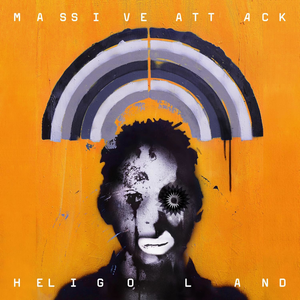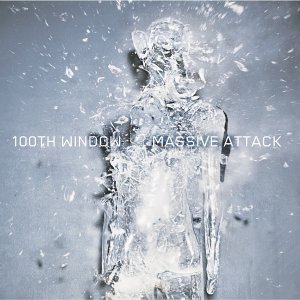Aladdin Sane sits in a slightly weird position in David Bowie's discography, as somewhat of a sequel to his break-out The Rise and Fall of Ziggy Stardust and the Spiders from Mars, but also kind of not. The titular character was originally pitched by Bowie as someone different to Ziggy, but is a lot less defined, and Bowie continued to tour as Ziggy for the live shows of this era, which has led this record to be viewed as somewhat of an extension of Ziggy (or Ziggy goes to America, in the words of Bowie himself).
Despite not having a linear narrative (or mentioning Ziggy once), Ziggy goes to America is exactly what this album is about. Ziggy Stardust was an album about the best a rockstar could be, literally saving the world through 'peace, love and rock'n'roll'. Aladdin Sane is about the worst: the sex, the drugs, the vanity. It was written on the American leg of the Ziggy Stardust tour, about what Bowie experienced there, and references many American places. The music is also jacked up to have a hard rock edge, inspired by the likes of The Rolling Stones; partly to appeal more to an American audience, partly to reflect the darker and more dangerous lyrical content of the record.
This is evidently demonstrated in the record's lead single (and one of Bowie's most famous tunes), The Jean Genie. This swaggering, cock-rock riff provides backing to the description of the person/creature/thing that the Jean Genie is. Bowie's tongue slithers around the lyrics, describing the Genie's appetite for razors and that he steals dead hair to make underwear. There's something so off-putting about this character, yet combined with the ear-wormy riff makes it so irresistible and captivating. Cracked Actor, similarly, has really overt and graphic references to cocaine, sex and prostitutes; with Bowie singing in this narcissistic snarl over roaring guitars. The track has some really tragic undertones as well with lines such as "show me you're real" and "please stay, please stay". It's as if the character Bowie is playing (or Bowie himself, it's hard to tell) has lost all feeling, and is sustaining themselves on the small amounts of dopamine that the drugs and sex give them.
Not everything on the record has the loud, swaggering rock aesthetic. There are a few slower, piano led tunes which are among the most reserved and artiest on the album. The title track introduces the character of Aladdin Sane to represent the glamour and high society of the rockstar lifestyle: the fancy hotels, the all-night parties, the adoring fans. The twinkly piano notes and gentle guitars make the track feel equally glamourous, but the song slowly descends into this hypnotic madness, climaxing in an avant-garde jazz piano solo performed by Mike Garson. It cleverly conveys the idea that this kind of egotistical lifestyle will send someone insane. The track Time personifies the concept of time as the ultimate nemesis to the rockstar-gods Bowie is describing on the record. They may think they're invincible, but time will always take everything away in the end. They will grow old and lose their sex appeal, the drugs will degrade their physical and mental health, the fans will move on to someone new. The stomping piano chords give the song a very pantomime villain vibe, alongside Bowie's overly dramatic and expressive vocals. The closer, Lady Grinning Soul, is the last of these piano tracks, and has similar moody, dramatic atmosphere to the title track. Bowie croons over the twinkly piano notes and acoustic guitar, and the way his voice builds up in intensity towards the end gives off a very bond-theme vibe to close out the album.
Unfortunately, not everything on the album works as well as these tracks. The opener, Watch That Man, is very inspired by The Rolling Stones. This track, alongside a cover of Let's Spend the Night Together, almost feels like Bowie is trying to outdo the Stones at what they do best and it just feels a bit over the top. Drive-In Saturday is inspired by 50s doo-wop, but glammed up a bit. The song has a much more whimsical nature than the rest of the record, telling the story of a post nuclear world where people have forgotten how to make love and have to relearn by watching old romantic films. While I enjoy the lyrical content of the song, the style it is paying homage to is just not something I'm all that fussed about. The Prettiest Star is also in this kind of style, but lacks Drive-In Saturday's engaging story, and so is easily the least interesting track here.
These tracks are no where near bad, they just don't quite work for me the same way the rest of the album does. I also think the album's legacy being so closely tied to The Rise and Fall of Ziggy Stardust and the Spiders from Mars does it no favours, as they are very different beasts when you get to know them. Aladdin Sane is dramatic and experimental, where Ziggy is whimsical and comforting. But on it's own merits, Aladdin Sane is a wonderful, if slightly inconsistent album.
Top Tracks: Aladdin Sane, Panic In Detroit, Cracked Actor, Time, The Jean Genie, Lady Grinning Soul
8/10





.jpg)
